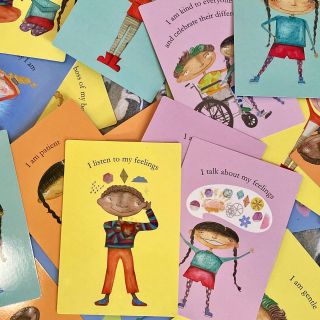Educational settings play a significant role in shaping a child’s development and learning experiences. Childrens affirmation cards can be a valuable addition to educational settings, enriching the learning environment and supporting students’ emotional well-being. In this article, we will explore how children’s affirmation cards can be incorporated in educational settings for maximum impact.
1. Creating a Positive Classroom Culture
Affirmation cards contribute to creating a positive classroom culture. By displaying affirmations on bulletin boards or incorporating them into classroom discussions, teachers can foster a supportive and encouraging environment. This positive atmosphere promotes student engagement, self-confidence, and a sense of belonging among students.
2. Enhancing Social-Emotional Learning
Children’s affirmation cards align with the goals of social-emotional learning (SEL) programs in schools. By integrating affirmation cards into SEL curricula, educators can help students develop self-awareness, self-management, and positive relationship skills. The affirmations reinforce important SEL concepts and provide students with tools for emotional regulation and resilience.
3. Supporting Individual Growth and Development
Affirmation cards support individual growth and development in educational settings. Teachers can use these cards to provide personalized affirmations to students, recognizing their unique strengths, and encouraging their progress. This personalized approach nurtures a growth mindset and motivates students to strive for excellence in their academic endeavors.
4. Cultivating a Mindful Learning Environment
Incorporating affirmation cards in educational settings helps cultivate a mindful learning environment. Teachers can incorporate mindfulness practices, such as reflection and deep breathing, while engaging with the affirmations. This cultivates a sense of focus, calmness, and present-moment awareness among students, enhancing their overall learning experience.
Conclusion
Children’s affirmation cards have a valuable role to play in educational settings. By creating a positive classroom culture, enhancing social-emotional learning, supporting individual growth and development, and cultivating a mindful learning environment, these cards contribute to a holistic approach to education. Incorporating affirmation cards into educational settings fosters emotional well-being, student engagement, and a positive learning environment.

